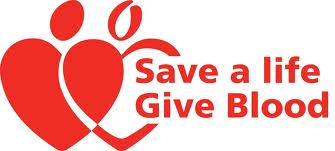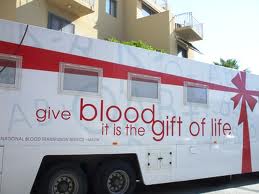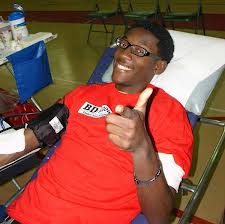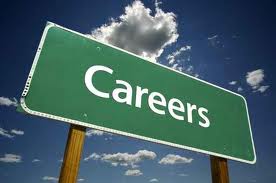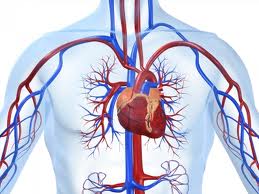We all know that giving blood is an act of life-saving and philanthropic activity. But did you know that donating blood may also be good for your body?
Iron stimulates cells to churn out free radicals, molecules that may contribute to cancer and other diseases of aging. Women tend to outlive men and are generally better at postponing the onset of age-related diseases, and one theory involves iron loss due to menstruation and that women have a hormone called “Estrogen” which according to some scientitists may help them before the menopause.
Here are four health benefits that may pay you back for your contribution.
1. Lower Iron Levels
You will lower the iron levels in your body every time you give blood, which can help reduce the risk of heart disease. High blood iron levels have the potential to increase the risk of cardiovascular disease because iron accelerates the oxidation process of cholesterol in the body, which damages arteries.
2. Reduce Cancer Risk
Consistent blood donation is associated with lowered risks for cancers including liver, lung, colon, stomach and throat cancers. Risk levels dropped in correlation with how often participants donated blood. (You can safely donate blood every 3 months (for men) and 4 months (for women).
3. Reduce Heart Attack Risk
Blood donors who donate regularly over years have an 88 percent lower risk of heart attacks and a 33 percent lower risk of any severe cardiovascular event, such as a stroke.
4. Replenish Blood
When you donate blood, your body replaces the blood volume within 48 hours of donation, and all of the red blood cells you lose during donation are completely replaced within four to eight weeks. This process of replenishment can help your body stay healthy and work more efficiently and productively.
6 Most Common EXCUSES For Not Donating Blood
Some of the most common excuses for not giving blood are as follows:
1. I don’t like needles:
Nearly everyone is a little apprehensive the first time they donate blood. However, most first time donors will tell you that you feel only a slight pinch when the needle is first inserted.
2. I don’t want to become infected with disease:
New sterile, disposable needles are used for each donor. It is impossible to get HIV/Aids or any other disease by donating blood.
3. I’m anemic:
Everyone who donates blood gets a “mini-physical checkup” which includes testing a drop of blood before donating to make sure that your blood has enough hemoglobin (Iron). Your iron level fluctuates daily. Although, you may have been deferred in the past, you could now be eligible.
4. I don’t have any to spare:
The average adult has about 10 to 12 pints of blood. Doctors say that healthy people may regularly donate blood. NOW, just think if the patient would have been a member close of your family, wouldn’t you have given blood?
5. I’m too busy:
The complete donation process just takes about 10 to 15 minutes. Just think how your blood could mean a lifetime for a premature baby, a woman in labor, somneone with cancer undergoing chemotherapy, or an elderly person facing surgery, we believe that you might decide the time you spend is worthwhile.
6. I’m diabetic or have High Blood Pressure:
A non-insulin dependent can give blood without any problem as well as a High Blood Pressure person.
Most people have a level of uncertainty on where to get help in how to choose a career and career guidance. There are 3 basic steps that a person can take to help them with the question of How to Choose a Career. Listed below are several suggestions to help you choose a career. These steps are especially helpful for students as they develop a career plan.
Steps in Choosing a Career
Step One
Figure out where your career interests are by asking yourself:
1. Where do my interests lie?
2. What do I do well and enjoy?
3. What kind of personality do I have?
4. What’s really important to me?
5. What are my values?
Draw on your own life experiences on jobs, classes or other opportunities that you may have particularly enjoyed. Remember, this is very personal and is all about you! Choosing a career can be very satisfying with the right help.
Step Two
Learn about your career options. Rarely do you have the opportunity to take a class in college that shows you the work-world as it actually exists. You have to take the initiative to explore it yourself. See if your college’s career office has a library of books describing different kinds of work, the typical qualifications needed and the salary ranges for various occupations. Your college’s career counselors should be able to help. Also, talk to people through informational interviews, and try out careers by shadowing and taking internships or part-time jobs. The more career planning that you can do as a student, the better prepared you will be when you start to look for your first job.
Step Three
A third part of how to choose a career is to sort out your priorities for a career. After you’ve spent time on steps one and two, some of your strong preferences may start to emerge. You might learn you don’t want to be in an office environment. Or you might find that your interest in art wouldn’t sustain a career, so you cross those types of jobs off your list. Whatever it is that you learn about yourself, you’re making important discoveries that will help you choose a good career when the time comes. This is a major component of career planning for students.
Most importantly, keep it all in perspective: You don’t have to live forever with any career decision you make in these phases of student career planning. Most people change careers several times during their lives, so the first job you choose right after college probably won’t be your career 15 or 20 years from now — unless you want it to be. So don’t put too much pressure on yourself to make the perfect decision, and always keep your eyes open, and use all available resources in your journey to find how to choose a career.
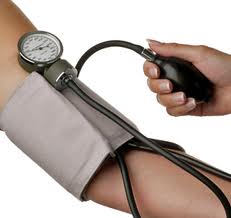
Hypertension (HTN) or high blood pressure, sometimes called arterial hypertension, is a chronic medical condition in which the blood pressure in the arteries is elevated. This requires the heart to work harder than normal to circulate blood through the blood vessels. Blood pressure is summarized by two measurements, systolic and diastolic, which depend on whether the heart muscle is contracting (systole) or relaxed between beats (diastole). Normal blood pressure at rest is within the range of 100-140mmHg systolic (top reading) and 60-90mmHg diastolic (bottom reading). High blood pressure is said to be present if it is persistently at or above 140/90 mmHg.
While high blood pressure is a serious health problem, there’s good news. No matter what your age or physical condition, there are things you can do to prevent high blood pressure.
The U.S. Department of Health and Human Services offers these 8 tips to help you prevent high blood pressure, or reduce your blood pressure if it’s already a problem.
1. Are you overweight? Lose weight.
Maintaining a healthy weight (see your doctor about this) will help prevent high blood pressure.
Getting back to a healthy weight is not as hard as it sounds. You can start by limiting the portion size of your meals and snacks, and cut way back on high calorie foods.
If you eat as many calories as you burn each day, you’ll maintain your weight. Eating fewer calories than you burn will help you lose weight. And losing weight will help lower your blood pressure.
2. When you plan meals, think of your heart.
Choose a diet that includes plenty of fruits and vegetables. Keep total fat low and avoid foods that are high in saturated fats and cholesterol.
Having a healthy heart will help prevent blood pressure.
3. Eat less salt and sodium.
Salt and sodium can increase blood pressure, so it’s important to read food labels. The U.S. guidelines suggest limiting sodium intake to no more than 2,400 mg, or about 1 teaspoon of salt each day.
If you eat canned, processed, and convenience foods, buy the brands that are lower in sodium.
If you salt your food at the table, try using less, or none. It may take a little while to get used to the new flavors, but you may find that food tastes better when you use less salt.
Fast food can contain a lot of sodium, so if you eat fast food choose items that are lower in salt and sodium. Reducing your salt intake will help to prevent high blood pressure.
4. If you drink alcohol, practice moderation.
The U.S. guidelines recommend that men have no more than 2 drinks per day, and women have no more than one alcoholic beverage per day.
5. Increase your physical activity.
Exercise is a key factor in preventing high blood pressure.
If you get very little exercise now, start slowly and work your way up to at least 30 minutes of a moderate-level activity, such as brisk walking or bicycling, each day. If time is a factor, you’ll still benefit by breaking the 30 minute daily exercise periods into 10 or 15 minute sessions.
6. Stop smoking.
Research shows that smoking increases your chances of developing a heart disease, stroke, peripheral arterial disease, and several forms of cancer.
7. Talk with your doctor or health care professional.
Learn what your blood pressure reading means to your health, and if medication is recommended for you to treat or prevent high blood pressure.
8. If your doctor prescribes medication, take it.
It’s important to understand:
a. what your blood pressure medication is expected to do for you
b. how to take your medication, and when
c. if your blood pressure medication has any side effects
d. if the blood pressure medication is safe to take with any other prescriptions or vitamins you are already taking
If you have high blood pressure and treatment is prescribed, don’t be afraid to ask questions or get another medical opinion. Once you understand why you’re taking the medication, follow the recommended dose.
But the best way to treat high blood pressure is to prevent high blood pressure from becoming a problem. These 8 tips, plus advice from your health care provider, can help you keep your blood pressure at a healthy level.


